

YORÙBÁ WRITING RULES
In this post, we will be sharing with you some of the rules that guides the writing of Yorùbá language. Over time, we discovered that people make a lot of mistakes when writing in this language. These rules will guide you to write Yorùbá the right way. Take a look at them….
No consonant clusters:
This writing rule says that there should be no consonant clusters in Yorùbá words. There are exceptions for cases where the nasal consonant ‘m/n’ stands as a syllable. For instance, in words like ‘nǹkan (something), Gbangba (in the open)’.
Consonants do not end words in Yorùbá Language:
Yorùbá language has 5 nasal vowels that are not usually visible in the Alphabets generally, They are “an, ẹn, in, ọn, un”. Any Yorùbá word that ends with a consonant, ends with any of these nasal vowels. Whenever words are borrowed into Yorùbá Language, they are usually coined so they can fit into this rule. Let’s look at these words: Facebook – Fesibúùkù Instagram – Íńsítágíráàmù Internet – Íńtánẹ́ẹ̀tì Samuel – Sámúẹ́lì
Tonal marks are necessary in Yorùbá Language because of heteronyms:
We also have heteronyms in Yorùbá Language, as a matter of fact we have so many of them. This is why it is necessary to learn the Yorùbá tonal marks and how to use them very well so we can avoid writing ‘ara (body)’ instead of ‘àrá (thunder)’, ‘ife (cup)’ instead of ‘ìfẹ́ (love). Let’s take a look at this: Ogun (War) Ògún (God of War) Ogún (Inheritance/Twenty) Ògùn (state) Oògùn (medicine, charm) Òógùn (sweat) Ó gùn (It is long) Ó gún (He pound…)
What about this… Agbọ́n (Hornet) Àgbọn (Coconut) Agbọ̀n (Basket) Àgbọ̀n (Jaw) A gbọ́n (We are wise) A gbọ̀n (We trembled)
Without tonal marks, it will be so difficult to discern what you mean when you write ‘ogun’, same goes for ‘agbon.
Writing out Yorùbá words fully:
This Yorùbá rule says it is important to write out the complete number of Vowels you hear in a word. Many people write out just one vowel in words where such vowel has duplicates. Let’s take a look at these examples: Aláàánú (the merciful) – many people write this as alanu Àlàáfíà (Peace) – mostly written as alafia Ẹ káàárọ̀ (Good morning) – mostly written as ẹ kaaro/karo Oríṣìíríṣi (various, different) – mostly written as orisirisi.
Writing of words as single words (Stop word clustering):
In this case, many people write two Yorùbá words together in a sentence. Just as it is not possible to write ‘amcoming’ in ‘I am coming’, Yorùbá words too should not be jam-packed. For instance, people write things like:
‘Mo nbo’ instead of ‘Mò ń bọ̀’ ‘Moti gbọ́’ instead of ‘mo ti gbọ́’ ‘Kini’ instead of ‘Kí ni’ ‘Bawoni’ instead of ‘Báwo ni’ (The syllabic ‘n’ stands alone in a sentence)
Have you learnt something? Let us hear from you in the comment section
Share this:
- Click to share on Twitter (Opens in new window)
- Click to share on Facebook (Opens in new window)
10 thoughts on “YORÙBÁ WRITING RULES”
can i get this translated into yoruba? probably just the sub headings…please?
Thank you so much
You are welcome! Kò tọ́pẹ́
Thank you! Kindly look forward to our soon to launch online bookstore, where you’ll find lots of relevant books.
Thank you for your blog article. Thanks Again. Want more.
This is so insightful and educative. Well done – ‘Ẹ ṣeun, mo dúpẹ́!’
Heavy heart here. Gross damage has been done to the beauty of this our language. We need to advocate for experts(teachers) that can handle our kids from the elementary stage.
I look forward to learn more on the root of the language from you. A lot of exposure done by you.
Keep it up ma, nature will continue to sustain you.
Yes, I have learned something and I am currently working on heteronyms.
I’m glad this was useful. Please be on the lookout for more relevant write-ups. Ire!
Thank you sooo much
Comments are closed.
The Yoruba Blog
Ẹ jẹ ki a gbé èdè àti àṣà yorùbá lárugẹ: keeping the yoruba language alive….

Iwé-àkọ-ránṣẹ́ ni èdè Yorùbá – Letter writing in Yoruba Language

Ni àtijọ́, àwọn ọmọ ilé-iwé ló ńran àgbàlagbà ti kò lọ ilé-iwé lọ́wọ́ lati kọ iwé, pataki ni èdè abínibí. Ẹ ṣe àyẹ̀wò àwọn iwé-àkọ-ránṣẹ́ wọnyi ni ojú iwé yi:
Ìwé ti Ìyá kọ sí ọmọ
Èsì iwé ti ọmọ kọ si iyá
Iwé ti ọkọ kọ si iyàwó
Èsi iwé ti aya kọ si ọkọ
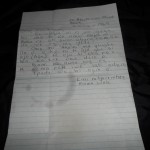
ENGLISH TRANSLATION
In the olden days, school children often helped the elderly who were not literate to write letters particularly in the ethnic language. See samples of letters written in Yoruba below:
Letter from mother to child
20 Afunbiowo Street Akure
20 February, 1969
My dearest child,
Hope you are well as I am here? Your Father and your younger ones are fine. Hope your studies are going on fine?
My child “Akanki” do not forget your home. You will not disappear in your land of sojourn (Amen). Face your studies. You will bring in your harvest home.
Extend greetings to your friends. We shall be expecting your response.
May our meeting be as sweet as honey.
Yours truly, Your mother – Wale’s mother.
Child’s response to mother
Room 24 Fagunwa Hall University of Lagos Akoka, Lagos
March 13, 1969
My Dearest Mother ,
How are you and my father? How is everyone at home?
I am very glad to inform you that I got to my School safely, my studies are going on fine. School is good, we are fed thrice daily, a big ocean is near our School. I met one our town’s man whose name is Kayode – from Aro’s family compound. He has helped me a lot to settle down in School.
I promise you and my father that I will not forget home.
Extend my special greetings to my younger ones ant to my brother Wale too. Also extend my greetings to my father and everyone at home.
We shall meet joyfully.
Yours truly, Your Son Ibukunolu
Husband’s letter to wife
12 Onabola Street Somolu, Lagos
12 October, 1978
My Dearest wife,
Hope you are well as I am here? How are my children? Hope their school is going on well?
I am glad to write you this letter, because I have been allocated an official car and I have secured an accommodation too. As a result, I will be sending for you all soon.
My love, hope the children are not stressing you? Tell Aduke that I love her dearly, if I see anyone coming home, I will send her toys.
Take care of the children very well. Extend my greetings to your mother and my father too. Greetings to everyone at home.
We shall meet joyfully very soon because I am eager to see my special wife and the children
Goodbye, we meet with happiness.
Your husband truly, Segun’s father
Wife’s response letter to husband in Yoruba
Ajamajebi’s ompound, Ilorin
My true husband,
I am glad to receive your letter. We are all fine. The children are doing well at School.
I am also glad to hear the joyful news that you have been allocated a car in your office and also that you have found an accommodation. By God’s grace, you will not record an accident with the vehicle.
The children are not giving me too much trouble but Aduke has been asking of her father always.
People at home are all fine.
We shall be getting ready because once the children begins their holiday we would love to join you in Lagos.
My mother sent her greetings. Father is a bit ill but he getting better little by little. Greetings from everyone at home.
I am eagerly looking forward to see my husband.
Do take care at work. We shall with joyfully.
Yours truly, Your wife Ibadi-ileke

Originally posted 2014-03-11 01:14:25. Republished by Blog Post Promoter
15 thoughts on “ Iwé-àkọ-ránṣẹ́ ni èdè Yorùbá – Letter writing in Yoruba Language ”
I am an African Brazilian descendent of Yoruba-Fon people. I have been studying Yourba language for quite a time of my life. I take the opportunity to congrtulate youo in your efforts to keep Youruba language and culture alive.
Hello there! I am a student of the language (well I’m trying) and i was wondering if there are any resources to help translate a Yoruba word to Yoruba complete with accents a diacritics ? Like if I want to know how to properly write ibo lo wa?
Hi, As at now there are no direct way of typing Yoruba word with accents a diacritics because there are no Yoruba keyboards in the market. However you can continue to check out the Yoruba Alphabets and other learning materials under the Learning subject on the Yoruba Blog. You can also download Latin Symbols to apply accents on Yoruba words. I do hope this will be helpful in answer to your question.
Thank you sir
Ki lo bere? You can ask your question or comment in English for clarity. Thanks.
As of 2019, there is a Yorùbá keyboard by Yorubaname.com (Kọ́lá Túbọ̀sún). You can download it by google-ing Yorùbá keyboard by yorubaname.com or Kọ́lá Túbọ̀sún. On phone, I use the SwiftKey app then add the Yorùbá language.
Alternatively you could copy and paste all the accented letters from this website.
Ẹ kú ìgbìnyànjú. Inú mi dùn láti sọ fún yín wípé ànfààní láti kọ èdè yorùbá nírọ̀rùn ti jáde. Mo ri wípé ó nira fún ọ̀pọ̀lọpọ̀ láti kọ èdè yorùbá pẹ̀lú ẹ̀rọ ayára bí àṣá. Ìdí ni yi tí mo fi ṣe ohun tí a le fi máa kọ èdè wa (Yorùbá) ati Igbo ati Hausa. Ẹ lọ sí àdírèsì yii gazaliwakil.com.ng
i like it but if u want me to cotinue in this site i need is a letter writing in yoruba telling your friend how u spent ur last easter holiday
Hello, why did you put a nasty comment in your earlier comment saying “you hate you people”.
Differences between informal and formal letter written in Yoruba. Can anyone help me with that and pls let it be written in a tabular form
The letters published ont this blog were “Informal”. What type of formal letter are you interested in? You can send an example of your type of formal letter so it can be translated into Yoruba.
Hi my name is Tina aka Arike that is the name my friend gave me. I will be moving to Nigeria soon but I want to write my friend a love letter in his language. I have been reading books on the language going on Youtube and even using Google translate in its awful. Google’s translation is saying something different from what I am writing. Can you do something on writing love letters? Translating from English to Yoruba
Hi Tina, please send a copy of the content of the kind of love letter you wish to write to enable The Yoruba Blog Editor to translate for you. Send such mail to: [email protected]
Leave a Reply Cancel reply
Your email address will not be published. Required fields are marked *
Save my name, email, and website in this browser for the next time I comment.
Privacy Overview
Follow the yoruba blog.
Get every new post on this blog delivered to your Inbox.
Join other followers:
- Subject List
- Take a Tour
- For Authors
- Subscriber Services
- Publications
- African American Studies
African Studies
- American Literature
- Anthropology
- Architecture Planning and Preservation
- Art History
- Atlantic History
- Biblical Studies
- British and Irish Literature
- Childhood Studies
- Chinese Studies
- Cinema and Media Studies
- Communication
- Criminology
- Environmental Science
- Evolutionary Biology
- International Law
- International Relations
- Islamic Studies
- Jewish Studies
- Latin American Studies
- Latino Studies
- Linguistics
- Literary and Critical Theory
- Medieval Studies
- Military History
- Political Science
- Public Health
- Renaissance and Reformation
- Social Work
- Urban Studies
- Victorian Literature
- Browse All Subjects
How to Subscribe
- Free Trials
In This Article Expand or collapse the "in this article" section Yoruba Language and Literature
Introduction, general overviews and commentaries.
- Bibliographies
- Early Newspapers
- Post-Independence Newspapers and Magazines
- Praise Poetry
- Oral Narratives
- Divination Poetry
- Primary Historical Texts
- Primary Poetic and Fictional Texts
- Translations, English Versions and Commented Editions
- Criticism and Intellectual Context
- Popular Theatre
- D. O. Fagunwa
- The Novel Tradition 1950–2013
- Criticism and Literary History
- Modern Written and Media Poetry
- Written Drama
- Language History
- Dictionaries
- Yoruba Grammars
- Beginners’ Language Courses
- Translations into Yoruba
Related Articles Expand or collapse the "related articles" section about
About related articles close popup.
Lorem Ipsum Sit Dolor Amet
Vestibulum ante ipsum primis in faucibus orci luctus et ultrices posuere cubilia Curae; Aliquam ligula odio, euismod ut aliquam et, vestibulum nec risus. Nulla viverra, arcu et iaculis consequat, justo diam ornare tellus, semper ultrices tellus nunc eu tellus.
- African Oral and Written Traditions
- Arabic Language and Literature
- Atlantic Slave Trade
- Hausa Language and Literature
- Language and the Study of Africa
- Literature and the Study of Africa
- Media and Journalism
- Swahili Language and Literature
Other Subject Areas
Forthcoming articles expand or collapse the "forthcoming articles" section.
- African Political Parties
- Business History
- Commodity Trade
- Find more forthcoming articles...
- Export Citations
- Share This Facebook LinkedIn Twitter
Yoruba Language and Literature by Karin Barber LAST REVIEWED: 17 August 2023 LAST MODIFIED: 29 September 2014 DOI: 10.1093/obo/9780199846733-0156
Yoruba is a tonal language of the Niger-Congo family and is spoken by about thirty million people, predominantly in Western Nigeria but with numerous speakers also in the neighboring Republic of Benin and Togo. Yoruba cultural influences are strong in the Caribbean and Brazil, and poetic texts associated with the worship of the Yoruba deities survive and are being reinforced by international travel between West Africa and the New World. Yoruba oral literature is rich and varied. Written Yoruba was first produced in ajami (adapted Arabic script) but extensive written texts in Yoruba began to be produced after the advent of Christian missions in the mid-19th century and were written in the Roman alphabet. One of the long-standing debates was over the appropriate way to represent tones and open and closed vowels by adapting this alphabet. Print culture, introduced by the missions in the 1840s, was quickly espoused by educated urban elites and a flourishing written literature became established from the 1880s onward. English and Yoruba texts coexisted and interacted throughout the colonial period and up to the present day, and a number of leading writers functioned equally well in both. This article provides an overview of the history of literature in the Yoruba language. It looks at oral and written texts, at Yoruba literary criticism, and at Yoruba dictionaries, grammars, language histories and beginners’ language courses.
A number of historical overviews exist. Babalọla 1985 provides a concise but comprehensive overview of a range of oral and written genres, with biographical notes on a number of key writers. Barber 2004 similarly covers both oral and written genres and includes modern performance genres from the 19th century to the present. Ogunbiyi 1988 is a collection offering very succinct but informative historical overviews. Afọlayan 1982 and Falọla and Oyebade 2011 are collections of essays by various authors touching on different aspects of oral and written literary production. The edited work Abimbọla 1975 is a compendium of essays on oral (and some written) traditions. Iṣọla 1992 makes the case for Yoruba as a literary language close to the life-world of its speakers, while Adejunmọbi 2008 takes a long historical view of the vitality of Yoruba as a literary language, from the 19th century to the present day.
Abimbọla, ‘Wande, ed. Yoruba Oral Tradition: Poetry in Music, Dance and Drama . Ifẹ, Nigeria: Department of African Languages and Literatures, University of Ifẹ, 1975.
This volume of more than one thousand pages stemmed from a major conference at the University of Ifẹ (now Ọbafẹmi Awolọwọ University) and features work by almost the whole of the then-Yoruba literary establishment. Despite the title, it includes essays on oral prose, written poetry, and miscellaneous cultural topics.
Adejunmọbi, Moradewun. “Technorality, Literature and Vernacular Literacy in 21st Century Africa.” Comparative Literature 60.2 (2008): 164–185.
DOI: 10.1215/-60-2-164
This essay considers the possibility that Yoruba-language print culture, after a century of efflorescence, is on the decline because of the growth of the media and the intensification of globalization. It concludes that Yoruba-language creativity is not waning but may be shifting into new mediatized forms such as video drama.
Afọlayan, A., ed. Yoruba Language and Literature . Ibadan, Nigeria: University Press, 1982.
This volume of conference proceedings contains classic essays by luminaries of Yoruba Studies including Oyin Ogunba on festival songs, Ọ. Ọlatunji on the classification of oral poetic genres, Ayọ Bamgboṣe on lexical matching in Yoruba poetry, and essays on aspects of Yoruba grammar, dictionaries, lexical borrowing, dialect, and language in education.
Babalọla, Adeboye. “Yoruba Literature.” In Literatures in African Languages . Edited by B. W. Andrzejewski, S. Pilaszewicz, and W. Tyloch, 157–189. Cambridge, UK: Cambridge University Press, 1985.
Succinct and comprehensive historical overview covering both oral and written literatures and including biographical notes on twenty-four significant writers. Very informative.
Barber, Karin. “Literature in Yoruba: Poetry and Prose, Travelling Theatre and Modern Drama.” In The Cambridge History of African and Caribbean Literature . Vol. 1. Edited by F. Abiọla Irele and Simon Gikandi, 357–378. Cambridge, UK: Cambridge University Press, 2004.
This historical overview essay covers oral, written, media, and performance genres from the 19th century to the 21st century, contextualizes the development of new genres and traces the relations between oral, print, and mediatized forms. Attention is given to early print culture and to popular oral and media genres often overlooked in literary overviews.
Falọla, Toyin, and Adebayọ Oyebade, eds. Yoruba Fiction, Orature, and Culture: Oyekan Owomoyela and African Literature and the Yoruba Experience . Trenton, NJ: Africa World, 2011.
Festschrift for Owomoyela, comprising twenty-seven essays on aspects of oral literature and its interface with writing. Topics include praise poetry, proverbs, ancestral masquerade chants, oral genres in ritual, festivals, and as historical sources; intertextuality and translation; orature in media; and legal and scientific dimensions of orature.
Iṣọla, Akinwumi. “The African Writer’s Tongue.” Research in African Literatures 23.1 (1992): 17–26.
Eloquent argument in favor of writing in one’s mother tongue, by a leading Yoruba-language novelist, playwright, and poet who is also a master of English-language writing.
Ogunbiyi, Yẹmi, ed. Perspectives on Nigerian Literature: 1700 to the Present . 2 vols. Lagos, Nigeria: Guardian, 1988.
This collection of short essays by a stellar cast of scholars focuses mainly on English-language literature, but it includes overviews of the history of Yoruba literature as a whole and individual pieces on the work of D. O. Fagunwa, Adebayọ Faleti, Ọladẹjọ Okediji, and Akinwumi Iṣọla.
back to top
Users without a subscription are not able to see the full content on this page. Please subscribe or login .
Oxford Bibliographies Online is available by subscription and perpetual access to institutions. For more information or to contact an Oxford Sales Representative click here .
- About African Studies »
- Meet the Editorial Board »
- Achebe, Chinua
- Adichie, Chimamanda Ngozi
- Africa in the Cold War
- African Masculinities
- African Refugees
- African Socialism
- Africans in the Atlantic World
- Agricultural History
- Aid and Economic Development
- Arab Spring
- Archaeology and the Study of Africa
- Archaeology of Central Africa
- Archaeology of Eastern Africa
- Archaeology of Southern Africa
- Archaeology of West Africa
- Architecture
- Art, Art History, and the Study of Africa
- Arts of Central Africa
- Arts of Western Africa
- Asante and the Akan and Mossi States
- Bantu Expansion
- Benin (Dahomey)
- Botswana (Bechuanaland)
- Brink, André
- British Colonial Rule in Sub-Saharan Africa
- Burkina Faso (Upper Volta)
- Central African Republic
- Children and Childhood
- China in Africa
- Christianity, African
- Cinema and Television
- Citizenship
- Coetzee, J.M.
- Colonial Rule, Belgian
- Colonial Rule, French
- Colonial Rule, German
- Colonial Rule, Italian
- Colonial Rule, Portuguese
- Communism, Marxist-Leninism, and Socialism in Africa
- Comoro Islands
- Conflict in the Sahel
- Conflict Management and Resolution
- Congo, Republic of (Congo Brazzaville)
- Congo River Basin States
- Conservation and Wildlife
- Coups in Africa
- Crime and the Law in Colonial Africa
- Democratic Republic of Congo (Zaire)
- Development of Early Farming and Pastoralism
- Diaspora, Kongo Atlantic
- Disease and African Society
- Early States And State Formation In Africa
- Early States of the Western Sudan
- Eastern Africa and the South Asian Diaspora
- Economic Anthropology
- Economic History
- Economy, Informal
- Education and the Study of Africa
- Egypt, Ancient
- Environment
- Environmental History
- Equatorial Guinea
- Ethnicity and Politics
- Europe and Africa, Medieval
- Family Planning
- Farah, Nuruddin
- Food and Food Production
- Fugard, Athol
- Genocide in Rwanda
- Geography and the Study of Africa
- Gikuyu (Kikuyu) People of Kenya
- Globalization
- Gordimer, Nadine
- Great Lakes States of Eastern Africa, The
- Guinea-Bissau
- Health, Medicine, and the Study of Africa
- Historiography and Methods of African History
- History and the Study of Africa
- Horn of Africa and South Asia
- Ijo/Niger Delta
- Image of Africa, The
- Indian Ocean and Middle Eastern Slave Trades
- Indian Ocean Trade
- Invention of Tradition
- Iron Working and the Iron Age in Africa
- Islam in Africa
- Islamic Politics
- Kongo and the Coastal States of West Central Africa
- Law and the Study of Sub-Saharan Africa
- Law, Islamic
- LGBTI Minorities and Queer Politics in Eastern and Souther...
- Lord's Resistance Army
- Maasai and Maa-Speaking Peoples of East Africa, The
- Modern African Literature in European Languages
- Music, Dance, and the Study of Africa
- Music, Traditional
- Ngũgĩ wa Thiong'o
- North Africa from 600 to 1800
- North Africa to 600
- Northeastern African States, c. 1000 BCE-1800 CE
- Obama and Kenya
- Oman, the Gulf, and East Africa
- Oral and Written Traditions, African
- Ousmane Sembène
- Pastoralism
- Police and Policing
- Political Science and the Study of Africa
- Political Systems, Precolonial
- Popular Culture and the Study of Africa
- Popular Music
- Population and Demography
- Postcolonial Sub-Saharan African Politics
- Religion and Politics in Contemporary Africa
- Sexualities in Africa
- Seychelles, The
- Slave Trade, Atlantic
- Slavery in Africa
- São Tomé and Príncipe
- Social and Cultural Anthropology and the Study of Africa
- South Africa Post c. 1850
- Southern Africa to c. 1850
- Soyinka, Wole
- Spanish Colonial Rule
- States of the Zimbabwe Plateau and Zambezi Valley
- Sudan and South Sudan
- Swahili City-States of the East African Coast
- Tanzania (Tanganyika and Zanzibar)
- Traditional Authorities
- Traditional Religion, African
- Transportation
- Trans-Saharan Trade
- Urbanism and Urbanization
- Wars and Warlords
- Western Sahara
- White Settlers in East Africa
- Women and African History
- Women and Colonialism
- Women and Politics
- Women and Slavery
- Women and the Economy
- Women, Gender and the Study of Africa
- Women in 19th-Century West Africa
- Yoruba Diaspora
- Yoruba Language and Literature
- Yoruba States, Benin, and Dahomey
- Privacy Policy
- Cookie Policy
- Legal Notice
- Accessibility
Powered by:
- [66.249.64.20|185.66.14.133]
- 185.66.14.133

How To Write In Yoruba Language

Table of Contents
Understanding the Yoruba Alphabet
The yoruba writing system, tips for writing in yoruba, how to write in yoruba language: a comprehensive guide.
Yoruba is a widely spoken language in West Africa, with over 20 million people speaking it as their native language. It is a tonal language, meaning that different tones convey different meanings. If you're interested in learning how to write in Yoruba, this guide will provide you with all the essential information you need.
The Yoruba alphabet consists of 25 letters, including two diacritical marks. The letters are:
- A, B, D, E, Ẹ, F, G, GB, H, I, J, K, L, M, N, O, Ọ, P, R, S, Ṣ, T, U, W, Y
The two diacritical marks are:
The diacritical marks are used to denote the vowels that are not represented by letters in the Yoruba alphabet.
Yoruba is written in a modified form of the Latin alphabet. There are a few rules to keep in mind when writing in Yoruba:
- Yoruba is a tonal language, so the tone of a word can change the meaning. In writing, the tone is indicated by diacritical marks.
- The letters B, D, G, and J are pronounced differently in Yoruba than in English. They are pronounced with the tongue curled back in the mouth.
- The letter H is silent in Yoruba.
- The letters Q, V, X, and Z are not used in Yoruba.
Here are some tips to help you write in Yoruba:
Understand the tonal system. As mentioned earlier, Yoruba is a tonal language, so you need to be familiar with the different tones and how they affect the meaning of a word.
Learn the alphabet. Knowing the Yoruba alphabet is essential to writing in the language.
Practice writing. Writing in Yoruba will help you become more familiar with the writing system and improve your skills.
Use a Yoruba keyboard. If you're typing in Yoruba, it's best to use a Yoruba keyboard. This will make it easier to type the diacritical marks.
Read Yoruba texts. Reading Yoruba texts, such as books and newspapers, will help you become more familiar with the language and improve your writing skills.
Examples of Yoruba Writing
Here are some examples of Yoruba writing:
- 1 – Ọkan
- 2 – Meji
- 3 – Meta
- 4 – Merin
- 5 – Marun
- E k’ale – Good morning
- E k’asan – Good afternoon
- E k’aleobo – Good evening
- E ku ise – Well done
Writing in Yoruba requires an understanding of the tonal system and the Yoruba alphabet. It takes practice to become proficient in writing in Yoruba, but with dedication and persistence, you can improve your skills. By following the tips outlined in this guide, you'll be on your way to writing in Yoruba in no time.
Can I learn to write in Yoruba without knowing how to speak it? Yes, it’s possible to learn to write in Yoruba without knowing how to speak it, but it’s recommended to learn the language as a whole to gain a better understanding.
Where can I find Yoruba texts to read? You can find Yoruba texts in books, newspapers, and online.
Is Yoruba a difficult language to learn? Like any language, Yoruba can be challenging to learn, but with practice and dedication, it’s possible to become proficient.
Can I use a regular English keyboard to type in Yoruba? Yes, you can use a regular English keyboard to type in Yoruba, but you'll need to use a Yoruba keyboard layout to add diacritical marks.
How long does it take to learn to write in Yoruba? The time it takes to learn to write in Yoruba varies depending on the individual's dedication and practice. It can take several weeks to several months to become proficient.
Related Posts
How to relocate to usa from nigeria (all questions answered).

How Much Is Visa In Nigeria Now: A Comprehensive Guide

How To Apply For An International Passport In Nigeria

A Study of the Yoruba Language Newspapers in the Colonial Era
- First Online: 27 April 2023
Cite this chapter
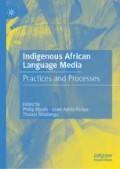
- Clement Adeniyi Akangbe 4 , 5
85 Accesses
The desire and enthusiasm to promote and project Yoruba language are manifested in several newspapers founded by individuals and organisations during the colonial era. With the birth of Iwe Irohin in 1859, other newspapers followed. It is remarkable that their motivating forces were love for Yoruba language and culture on one hand, and passion for political emancipation of the people on the other. With this, a solid foundation was laid for virile journalism practice. The choice of Yoruba language for this study among the indigenous Nigerian languages was because of the availability of sufficient newspapers, particularly during the colonial era. Preliminary investigation showed that though there had been few studies on Yoruba language newspapers, there has been none that concentrated solely on the Yoruba language newspapers in the colonial era. Relying on the theory of New Historicism, this study intends to fill this gap. This study identifies the notable Yoruba newspapers that existed before Nigeria obtained her independence from the British colonialists, it examines their contents and form and emphasises their pertinent features.
- Yoruba language newspapers
- Colonial era
- Yoruba News
This is a preview of subscription content, log in via an institution to check access.
Access this chapter
- Available as PDF
- Read on any device
- Instant download
- Own it forever
- Available as EPUB and PDF
- Durable hardcover edition
- Dispatched in 3 to 5 business days
- Free shipping worldwide - see info
Tax calculation will be finalised at checkout
Purchases are for personal use only
Institutional subscriptions
Akangbe, C. A. (2014). History, production and content of Atọ́ka Photoplay magazine (An Unpublished Ph.D. Thesis). University of Ibadan.
Google Scholar
Akangbe, C. A. (2020, Fall). The form and content of Obasa’s weekly newspaper: The Yoruba news . Yoruba Studies Review, 5 (1.1).
Akanle, O., Adejare, G. S., & Oloyede, M. O. (2015, July). Ethnography of flooding in Ibadan metropolis, Nigeria: Agencies of flooding in developing countries. Ibadan Journal of Sociology, 2 , 5–31.
Akinyemi, A. (2017). D.A. Obasa (1879–1945): A Yoruba poet, culture activist and local intellectual in colonial Nigeria. Africa, 87 (1), 1–15.
Brannigan, J. (1999). Introduction: History, power and politics in the literary artifact. In J. Wolfreys (Ed.), Literary theories: A reader & guide. New York University.
Falola, T. O. (2016, March 31). Nigeria—Nigeria as a colony. Encyclopedia Britannica Online . Encyclopedia Britannica. Web. http://www.britannica.com/place/Nigeria/Nigeria-as-a-colony
Gallagher, C. (1985). The industrial reformation of english fiction: Social discourse and narrative form 1832–1867 .
Greenblatt, S. (1982). “Introduction” to the forms of power and the power of forms in the renaissance. Genre, 15 , 3–6.
Goldberg, J. (1983). James 1 and the politics of literature: Johnson, Shakespeare, Donne and their contemporaries . Johns Hopkins University Press.
Hair, P. E. H. (1994). The early study of Nigerian languages: Essays and bibliographies. Gregg Revivals.
Howard, J. (1986). The new historicism in renaissance studies. English Literary Renaissance, 16 , 13–43.
Article Google Scholar
Montrose, L. A. (1983). “Shaping fantasies”: Figurations of gender and power in Elizabethan culture. Representations, 1 (2)(Spring), 61–94.
Montrose, L. A. (1989). Professing the renaissance: The poetics and politics of culture. In H. A. Veeser (Ed.), The new historicism. Routledge.
Ogunsina, B. (2002). Ṣáájú Fágúnwà: Àgbéyẹ̀wò Àwọn Ìtàn Àròsọ Yorùbá Láti Ìbẹ̀rẹ̀ Pẹ̀pẹ̀. Gbenle Press.
Oguntoyinbo, J. S. (1994). Climatic characteristics. In M. O. Filani, F. Akinola, & C. O. Ikorukpo (Eds.), Ibadan region (pp. 58–71). Rex Charles Publication.
Salawu, A. (2004, May). A readership survey of Yoruba newspapers for development messages. Journal of Social Sciences, 8 (3), 197–202.
Sasu, D. D. https://www.statista.com/statistics/1296025/total-number-of-road-casualties-in-nigeria/ . Accessed Tuesday, August 23, 2022.
Download references

Author information
Authors and affiliations.
Indigenous Language Media in Africa, North-West University, Potchefstroom, South Africa
Clement Adeniyi Akangbe
Department of Library, Archival and Information Studies, University of Ibadan, Ibadan, Nigeria
You can also search for this author in PubMed Google Scholar
Corresponding author
Correspondence to Clement Adeniyi Akangbe .
Editor information
Editors and affiliations.
Indigenous Language Media in Africa (ILMA), North-West University, Mafikeng, South Africa
Phillip Mpofu
Israel Ayinla Fadipe
Thulani Tshabangu
Rights and permissions
Reprints and permissions
Copyright information
© 2023 The Author(s), under exclusive license to Springer Nature Singapore Pte Ltd.
About this chapter
Akangbe, C.A. (2023). A Study of the Yoruba Language Newspapers in the Colonial Era. In: Mpofu, P., Fadipe, I.A., Tshabangu, T. (eds) Indigenous African Language Media. Palgrave Macmillan, Singapore. https://doi.org/10.1007/978-981-99-0305-4_20
Download citation
DOI : https://doi.org/10.1007/978-981-99-0305-4_20
Published : 27 April 2023
Publisher Name : Palgrave Macmillan, Singapore
Print ISBN : 978-981-99-0304-7
Online ISBN : 978-981-99-0305-4
eBook Packages : Literature, Cultural and Media Studies Literature, Cultural and Media Studies (R0)
Share this chapter
Anyone you share the following link with will be able to read this content:
Sorry, a shareable link is not currently available for this article.
Provided by the Springer Nature SharedIt content-sharing initiative
- Publish with us
Policies and ethics
- Find a journal
- Track your research
- 0 0 Your cart is empty Browse Shop
Ìyá ≠ Mother: Making a Yoruba sense of motherhood
Reflections on motherhood as a revered singular category with no equal
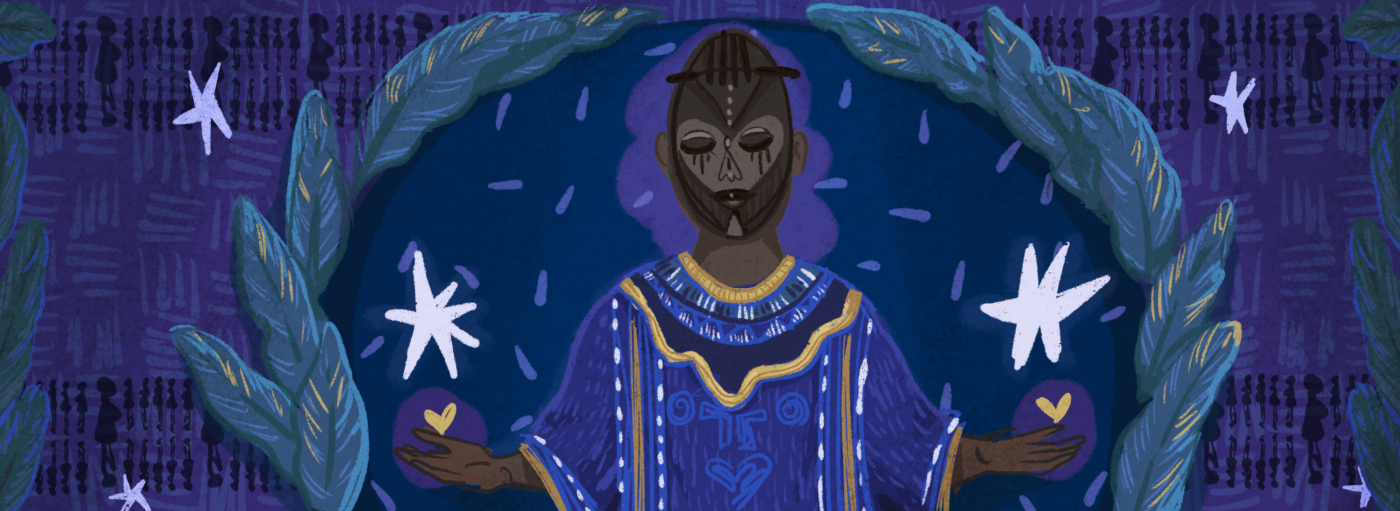
Last year, my mother got very sick, and it was scary. It got me reflecting on what my mother means to me and who she is.
I have often found myself reflecting on motherhood and being a mother. Not because I am a mother or plan on being one, but because I don’t think we afford motherhood the appropriate level of reverence – especially in the Western canon.
Unfortunately, the colonial project and its constant rebranding have hegemonic control over how we conceptualise motherhood, and rendered us unable to articulate its complex and reverential nature.
In my time of pain, anxiety and deep sadness for my mother, I found myself picking up Oyèrónkẹ́ Oyěwùmí’s What Gender is Motherhood (WGIM) again to remind myself of the “otherworldly, pre-earthly, preconception, pregestational, presocial, prenatal, postnatal, lifelong, and posthumous” relationship I have with my mother.
The only thing that could bring me peace was that my mother would remain my mother no matter the outcome.
Who is Ìyá?
Oyěwùmí discusses extensively and convincingly in The Invention of Women how the colonial project introduced gender constructs among Yorubas with their inaccurate translations of how we arrange our societies. We often conceptualise gender/sex as a binary and, sometimes, a spectrum with opposing ends; word and opposite; female and male; mother and father. However, motherhood for Yoruba people transcends the gender/sex category.
Ìyá is often translated as the Yoruba word for mother ; however, these are not the same. The institution of motherhood in the English canon is represented as gendered by various dominant conceptualisations, feminist and non-feminist.
To gender the Ìyá, or reduce it to a gendered institution, is not only reductive to who an Ìyá is but, frankly, insulting.
Ìyá embodies what Oyěwùmí refers to as the matripotent principle. This concept reflects the spiritual and material authority of Ìyá that is derived from their procreative role. A particular emphasis is placed on the relationship between Ìyá and their birth children, as this expression of matripotency is considered the most potent.
Furthermore, the matripotent ethos is linked to a seniority system, as Ìyá is revered as being more senior to their children. Since all humans have an Ìyá, no one is greater, older or more senior than them.
The lack of gender pronouns and the presence of age and seniority-based pronouns in the Yoruba language should instantly make it obvious why Ìyá is better conceptualised under the age and seniority-based hierarchal system, not a gender based one. You are not an Ìyá because you are a woman; you become an Ìyá when you have a child.
Ìyá as a spiritual category
At the core, for we Yorubas, Ìyá is a spiritual category that transcends the simplistic understanding ushered in by modernity.
Fatherhood is simply a socially constructed position that could be negotiated through marriage rites and kinship. The social construction is further entrenched through evidence of women being fathers through woman-woman marriages in Yoruba history.
Women had a path to fatherhood through the marriage rites they performed with other (sometimes younger) women. This would involve the latter having intercourse with a relative or friend of the former. However, providing the sperm or a biological connection was not what made the person the father; what determined this was the marriage rites. Therefore, fatherhood was highly negotiable.
We can immediately understand why limiting either fatherhood or motherhood among Yorubas to gender categories is redundant.
We can begin to imagine the spiritual possibilities and potential of the Ìyá. Ìyá is not simply one that gives birth to a child; Ìyá is a co-creator of the child and gives life with the Ẹlẹ́dàá (creator) because Ìyá is present at creation.
An aboyún (pregnant person) exists in a precarious position between the world of the unborn and the living. Spiritual and medicinal practices enacted during pregnancy and childbirth aid the aboyún in remaining rooted in the realm of the living during this life-altering and community-altering experience.
When a child is born, we congratulate the Ìyá on surviving the dangers of childbirth by saying, “ẹ kú ewu ọmọ.” There is no greater tragedy than an Ìyá losing their life as they create a new one.
When we say “ìkúnlẹ̀ abiyamọ” (the kneeling of an Ìyá in the pains of labour), it’s not a mere saying or figure of speech. This historically preferred position of childbirth is an act of reverence to solicit support from the orisas on the journey of bringing life into the world. It is not a coincidence that the day the Ìyá gives birth is referred to as ọ́jọ́ ìkúnlẹ̀ (literally translated to mean the day of kneeling in labour).
During childbirth, the Ìyá exists at the intersection between the realm of the unborn and the physical world. It is a dangerous position and should not be taken lightly.
Subscribe to shado's weekly newsletter
Exclusive event news , job and creative opportunities , first access to tickets and – just in case you missed them – our picks of the week , from inside shado and out.

It is, therefore, postulated that Ìyá is the co-creator of humanity, serving as the source from which all humans are derived and thus functioning as an archetypal human being.
For this reason, the Ìyá is blessed with mystical resources to martial on their children’s behalf. No one knows you like your Ìyá because your Ìyá is present at your creation. Your Ìyá is your guide into the world and has the power to proclaim over you how you exist in this world.
The father cannot stand as an opposing institution, gendered or not, because these demands, or opposing but equivalent ones, are not asked of the father.
Essentially, fatherhood does not have the range to stand opposite to Ìyá.
Ìyá in Practice
The spiritual powers of mothers are symbolised by various Yoruba systems that exist today, such as the Gèlèdé festival, which celebrates the power of older women, àwon iyá wa (our mothers). The understanding of Ìyá here goes beyond biological motherhood, but evokes the political power of elderly women through public motherhood.
Public motherhood is where Ìyás no longer function as wives, but are devoted to their children, this often extends beyond the household and into the community. Much of this power is granted from their role as mothers.
Much of this public power is used to influence the decisions on Ọbas (rulers), marshalling on behalf of the community, managing conflict in the town and overseeing public affairs, such as market trade. We see this in the role of the Ìyálóde (mother owns the outside world), an important role in the council of the Ọba.
I have been blessed to have an Ìyá that embodies this conceptualisation of an Ìyá.
When a child is born, so is an Ìyá. I have older siblings, so my Ìyá became an Ìyá long before I arrived, but my Ìyá became an Ìyá again when I was born.
My Ìyá is the person who taught me that the word “Chairperson” was her title, and not the implicit male burden it carries. Everyone knows who chairperson is for miles in Ipaja, and it’s not always the person with the current title, which is actually currently my Ìyá. Since my Ìyá became chairperson, she was forever the chairperson, whether she held the title or not.
My Ìyá is someone with the confidence to march into Alausa (the seat of the Lagos State Secretariat and offices of the Governor and Deputy-Governor of Lagos State) and successfully make the demands of the community known.
My Ìyá is the first feminist* I knew, who advocates for assault survivors, particularly gender-based violence. The abolitionist * known at Alagolo Police Station for not letting the police officers get away with their senseless and extortionate arrests, and instead focusing on community accountability, care, and rehabilitation.
She is the matron to countless youth groups, and the Yeye Atunwase of Ayobo Land. This is an official chieftaincy title my Ìyá holds as a member of the council of the Ọba of Ayobo. Yeye , another Yoruba word for Ìyá.
My Ìyá embodies the spirit of an Ìyá, not only to my siblings and me but to so many. I very quickly realised that my Ìyá was not simply my Ìyá but an Ìyá to many. Like many Ìyás in our community who evoke public motherhood, she is actively committed to the people in the community’s lives. This was not simply a product of her gender but based on her seniority, experience and impact on the lives of the people in the community.
The prayers of my Ìyá speak words of life into me and the community. As she prays, she reminds me of the day she was the bridge that brought me into this world. She reminds of her tears in pain as she knelt to pray for safe passage. She reminds me of the body that fed me for the first few months before I was ready to face the harsh realities of this world.
My Ìyá’s health is improving, and we believe the worst is behind us. But if this experience taught me anything, it is how much I take what my Ìyá means to me and who my Ìyá is for granted.
It is a shame life (read: the insidious nature of the colonial project and the age of modernity that saw to change, and not preserve the precious conceptualisation of my Ìyá) gets in the way sometimes. But through this, I know that no matter the outcome, by being my Ìyá, she will always be with me, physically and spiritually.
- Read What Gender is Motherhood by by Oyèrónkẹ́ Oyěwùmí
- Read The Invention of Women by Oyèrónkẹ́ Oyěwùmí
- Read Mother Is Gold, Father Is Glass by Lorelle D. Semley
- Watch Journey of an African Colony on Youtube
- Listen to the Reconceptualising Rotimi Fani-Kayode podcast by queer/disrupt
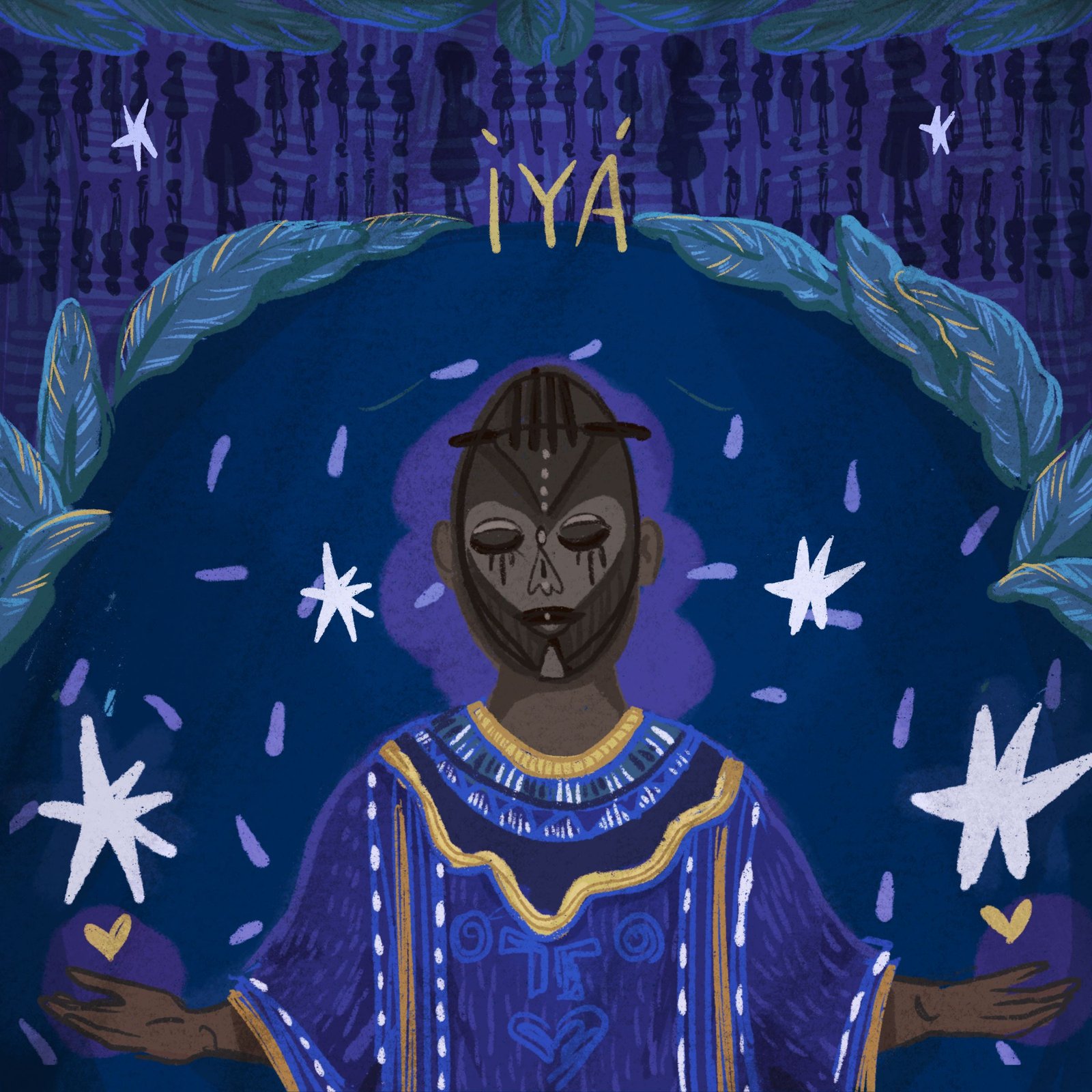
Was I a poster girl for carceral feminism?
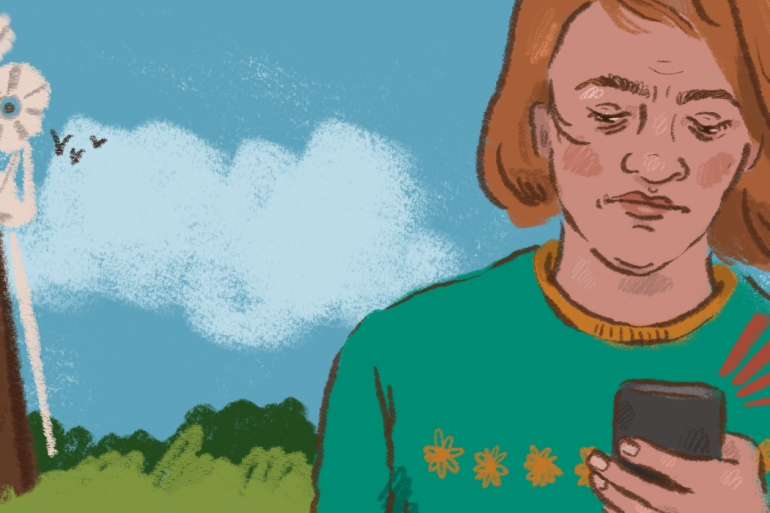
How a Roman myth helped me understand coercive control

Can we trust our universities to protect their Palestinian students?
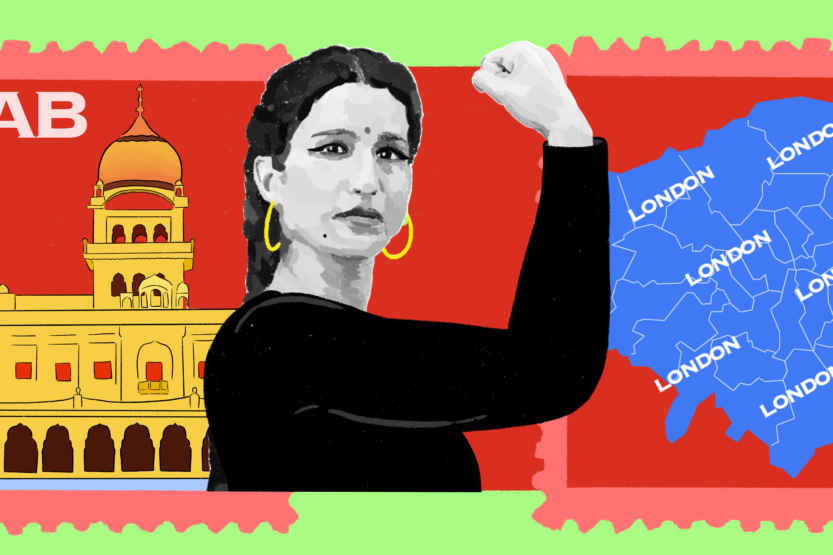
Finding my feet in second-generation politics

How Seaspiracy evaded western accountability

Fashion’s complicity in the Uyghur genocide: who holds the power?
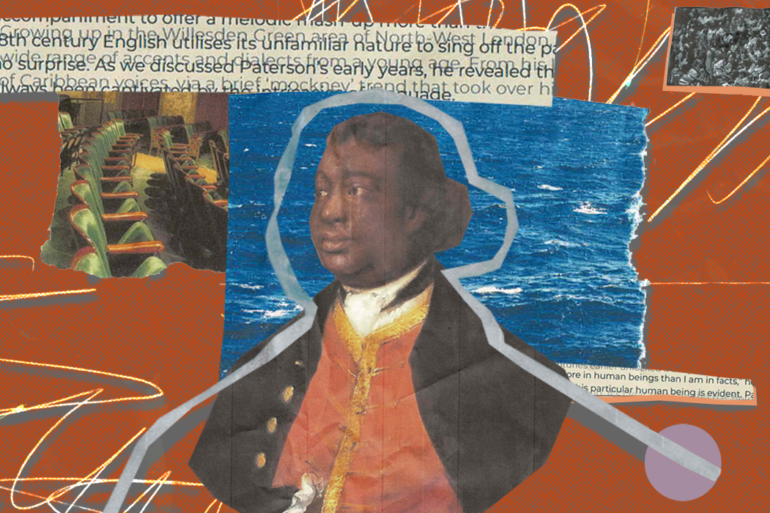
How the UK’s first Black abolitionist helped Paterson Joseph find his voice
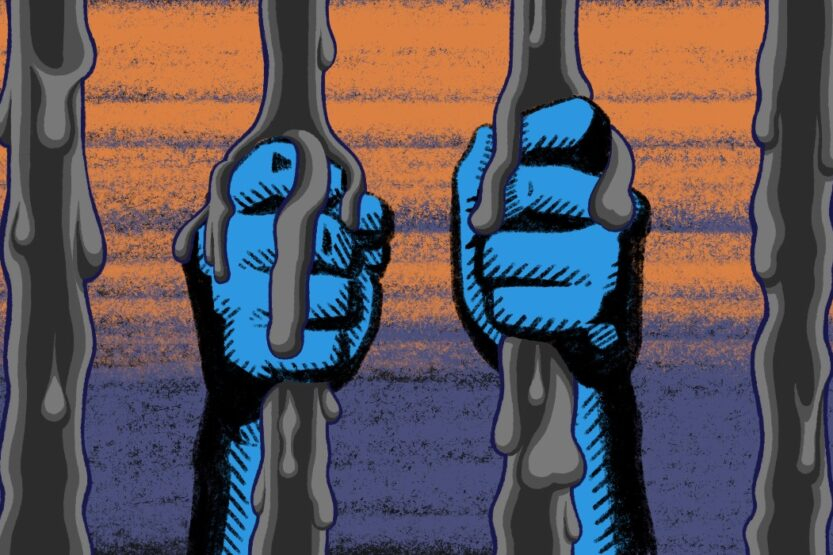
Overheating the forgotten
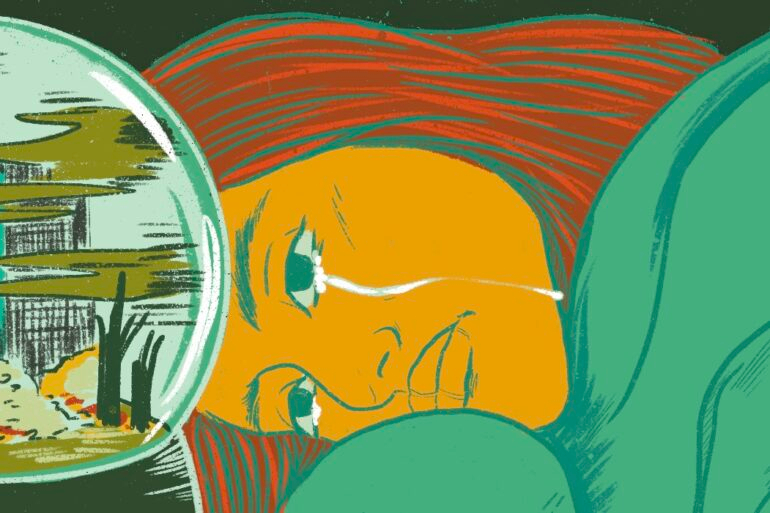
It’s the end of the world as we know it, and I don’t feel fine: Overcoming eco-anxiety and eco-phobia
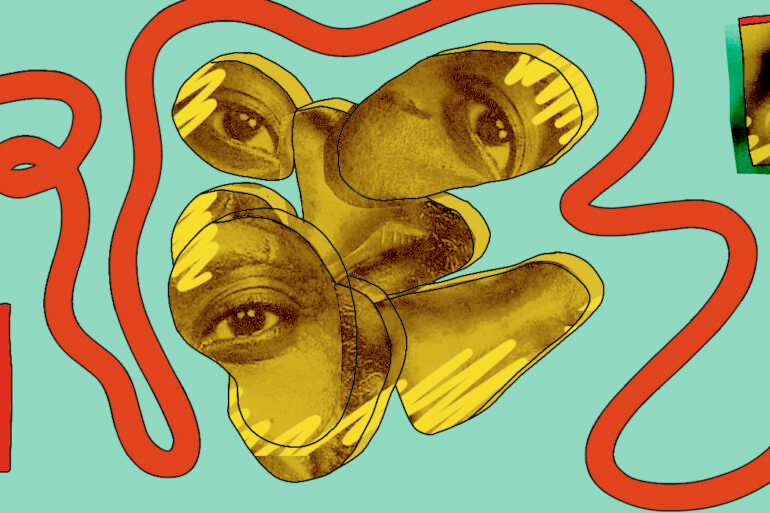
Masculinity, power and love: How we voluntarily defer power because we love
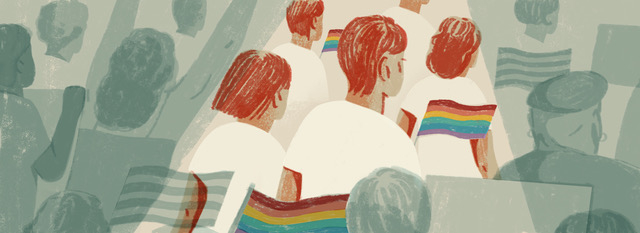
Continued police presence at Pride proves how whitewashed it has become
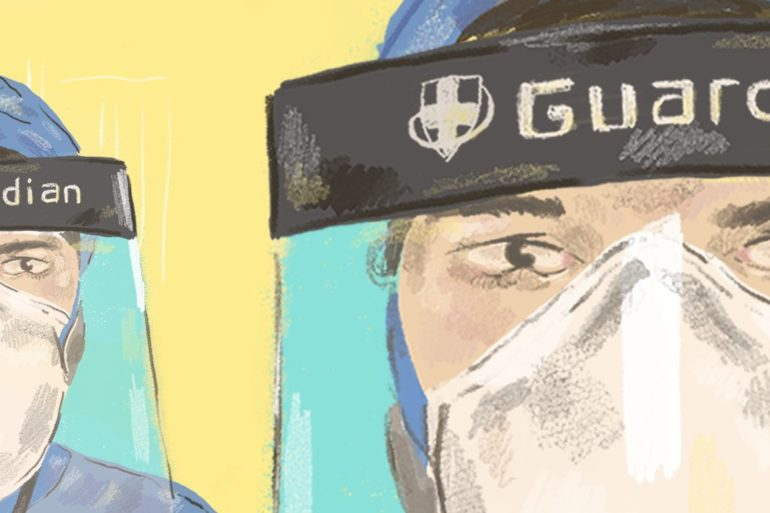
“It is typical of Conservative governments to ignore both long-term and scientific concerns, but their dithering, lying and demonisation of key workers is unprecedented and is costing lives.”

Shado Newsletter
Email address:
I have read and agree to the privacy-policy
Academia.edu no longer supports Internet Explorer.
To browse Academia.edu and the wider internet faster and more securely, please take a few seconds to upgrade your browser .
Enter the email address you signed up with and we'll email you a reset link.
- We're Hiring!
- Help Center

The Drum Language: A Musico-Texual Appraisal of Iyaalu Dundun Language

Related Papers
Babalola Halira
The talking drums of the Yoruba people of the South West of Nigeria are like many other types of drums found in other parts of the world in that they are melody producing/enhancing musical instruments accompanying song and dance performances made of hollow round frame with tightly fixed plastic or skin membrane on the surface(s) beaten with the hand(s), stick(s) or other materials. However, the Yoruba talking drums of the South West people of Nigeria are unlike the many other types of drums found in other parts of the world in that they are not just mere melody producing/enhancing musical instruments. This is basically because they can be used to disseminate vital messages and to respond to disseminated information. This paper introduces the term drummunication to explain the use of Yoruba talking drums to send and receive messages or information. The paper attempts a taxonomy of the Yoruba drums to establish the real talking drums. It explicates the functions of effective drummunication and barriers to effective drummunication. Most importantly, it suggests steps that can be taken to enhance the effectiveness of drummunication. Abstract-The talking drums of the Yoruba people of the South West of Nigeria are like many other types of drums found in other parts of the world in that they are melody producing/enhancing musical instruments accompanying song and dance performances made of hollow round frame with tightly fixed plastic or skin membrane on the surface(s) beaten with the hand(s), stick(s) or other materials. However, the Yoruba talking drums of the South West people of Nigeria are unlike the many other types of drums found in other parts of the world in that they are not just mere melody producing/enhancing musical instruments. This is basically because they can be used to disseminate vital messages and to respond to disseminated information. This paper introduces
Composing, Performing, Musicologising And Teaching: The World of An Astute African Musicologist (A Festschrift In Honour of Professor Claudius Oluyemi Olaniyan
Adeolu A B I D E M I Ogunleye
The talking drum otherwise known as the hourglass drum is a prominent traditional musical instrument in Africa. The Yoruba Dundun a leading talking drum, is a membranophonic musical instrument that mimics the tone and prosody of speech. It is ubiquitous in the contemporary world of African music. The distinctiveness of the Dundun talking drum lies in its rhythmic and communicative potency. Extant literature has shown that from ancient times to date, the Yoruba Dundun drum which exists in typologies has been a viable means of worship, entertainment, and communication. Its association with the Ayan Agalu (deity of drum) dynasty makes it a subject of inheritance. To this end, the paper aims at identifying the systematic classification of the Dundun ensemble to examine the mysterious elements. The article theoretically relies on Idamoyibo (2016) that argues that "traditionally, no Ayan drummer plays his drum without due ritual consultation with the deity". Apart from personal background experience from Agbo ile Ayan (Ayan family compound) where the author grew up, the paper relies on existing literature, bibliographies, and other interviews with other Ayan family professionals talking drummers in terms of research for relevant data. The article finds out that there has been a transformation in Dundun practices today as a result of Western religion and formal education. The paper concludes that the talking drum irrespective of its associated mysteries is still useful and relevant in modern-day religions and society at large.
Global Journal of Human Social Science
samson oluga
Linguistique et Langues Africaines
Samuel Akinbo
The present paper proposes an articulatory and acoustic study of the representation of Yorùbá tones in gángan (a talking drum). The video and spectrographic analyses of the data collected from five native drummers in Nigeria show the number of syllables in a word directly corresponds to the number of strikes on the drum membrane. As the talking drum resonates from the strikes, the drummers tightened and loosened the drum membrane to articulate the three tones in Yorùbá. Furthermore, tonal processes such as tone contour formation on the second tone in HL or LH sequences are musically rendered. Based on this evidence, this paper concludes that drummers are able to represent syllables, lexical tones and tonal processes of Yorùbá speech with a talking drum.
Azeez Akinwumi SESAN
The inevitable incursion of modernity and technology in post-colonial African Yoruba societies is rendering the nobility and royalty attached to drum poetry among the ancient Yoruba people irrelevant, as understanding the mean-ing of drum poetry marks the nobility and royal inclination of the decipherer. This article reviews previous studies on drum poetry/literature with participant observation/field investigation used in the collection of data. It taxonomizes drum poetry into sacred and secular. It also draws comparisons to and finds similarities with how humans and drums communicate. This paper arrives at the conclusion that tone and tonal marks within situational contexts are the hallmarks of the semantic interpretation of drum poetry. Keywords: humans; meaning; tonal marks
Yoruba Studies Review
Olusegun oladosu
The cultural and religious experiences and expressions of the Yorùbá people are mediums to their ways of life. Culture as defined is “a way of life” with both tangible and intangible elements embedded in the culture. The behavior, beliefs, values, and symbols that the Yorùbá accept are represented through culture. The indigenous drum, as part of the tangible aspects of Yorùbá culture from the past, has been one of the mediums of displaying their cultural heritage; and therefore instituting models of socialization. Despite the importance of the heritage, it shows that modernization and civilization have brought different reflections on the nature of Yorùbá drumming and this in a way reduces the cultural values of the drumming performance. This paper tends to look at the values of indigenous drum among the Yorùbá people through the phenomenological framework and then show how its lost glory can be revived in action and written forms. The submission of the paper is to emphasize that in...
Creative Artist: A Journal of Theatre and Media Studies
TRACIE UTOH-EZEAJUGH
Dance is the outward rhythmic expression of inner emotion that compliments a good rhythm and is performed within time and space. Although some dance scholars and performers, notable among who is Susanne Kircher, have tried to experiment with unaccompanied dance movements; the notion of dance without music appears to be the exception rather than the rule especially in African where the irresistible pull of the talking drum draws the young and old to the dance arena. Drums are the dominant musical instruments in African performances. The lead drum in any ensemble is the talking drum which is a melorhythmic instrument that dominates as a medium of communication. Ugoamaka dance has over the years utilized the dynamic abilities of the talking drum to enhance the overall impact of its performances. Using the qualitative method of field and library research, this paper studies the role of the talking drum in African music ensemble and the relationship between music and dance in African ind...
Composing, Performing, Musicologising and Teaching: The World of an Astute African Musicologist.
Kayode O Olusola
This paper examines the Ulale ensemble as one of the traditional musical instruments of Egbe people Ijebu of Ijebu-Ode in order to examine and provides the full description of its structure and construction, performance practice and techniques; as well as rhythmic construction and styles in its performances. This work is hinged on ethnomusicological theory as premise for discourse, while both oral and bibliographic methods were employed in gathering the needed information. Research findings revealed that Ulale ensemble is an indispensable group of drums used for multipurpose life events among the Egbe people of Ijebu-Ode. This ranges from religious/rituals, social events and other entertainment purposes in the community. Ulale enesemble also constitues the musical instruments used for accompanying Apepe, Magbo and Yegbe music among the people of Egbe. The paper concludes that Ulale constitutes the most valueable and indispensable ensemble among the Egbe people of Ijebu-Ode because of its ubiquitos functions and roles it plays in all musical acyivities which exists in Egbe community. This work therefore highlights and document the ethnomusicological value and imports of the ensemble as unique Yoruba indegenous musical instruments.
Reuben Glover
Femi Abiodun
What brought about changes in the context of music performance in Yoruba region of Nigeria is yet to be subjected to analysis within ethnomusicologicalframework. Assumptions are that there is a departure from Yoruba music philosophy and more dearly, the colonization project has put unwanted strength on Yoruba music. This paper reconstructs narratives and counter-narratives in Yoruba philosophy and colonial music to contribute to the musicological understandings of what Yoruba dundun music is not. The dundun music is an instrumental performance on hourglass drums containing at least Ìyá-lù, and any two of Gúdúgúdú, Isaájú, Àtèlé, Aguda, Sèkèrè-ajé, orAro.It ranges from a solo performance to group performance with a purpose of communication; showcasing its versatility because of its ability to imitate human voice. Five groups of dundun performers in IleIfe districts of OsunState were interviewed in this study. Analysis engaged the Kimmerlie three philosophical themes in the African wa...
RELATED PAPERS
Satibi Toys18
Biology of Reproduction
Dionisios Chrysis
Indah Ayu Amelia
Archives of Biochemistry and Biophysics
Kelly Skinner
kawal kurrey
Acta Applicandae Mathematicae
Roman Popovych
Interspeech 2020
John Hansen
Proceedings of the 30th Annual ACM Symposium on Applied Computing
Souad Bouasker
Journal of Accounting & Marketing
Tomy Mathew
Revista Estado da Arte
Neiva Maria Fonseca Bohns
Life Sciences
Shrikant Mane
Revista de Musicología
Carlos Martínez Gil
European Journal of Neuroscience
Oliver Weinmann
Trung Nguyễn
Clinical Chemistry
Patricia Slev
Geologica Acta
Tadeusz Peryt
Journal of Ethnopharmacology
Dr. Prashant Verma
Benjamin Bernuz
NEDRET ÖZTOKAT KILIÇERİ
HAL (Le Centre pour la Communication Scientifique Directe)
Francoise Villedieu
Journal of Hunan University Natural Sciences
Dr Azmil Hashim
Lecture Notes in Computer Science
Takaya Arita
Clinical Nephrology
Maria Canziani
Journal of Vascular Surgery
Maciej Dryjski
See More Documents Like This
- We're Hiring!
- Help Center
- Find new research papers in:
- Health Sciences
- Earth Sciences
- Cognitive Science
- Mathematics
- Computer Science
- Academia ©2024

IMAGES
COMMENTS
We shall begin to publish various samples of essay in Yoruba language in order to assist students, interpreted the essay as well as an audio recording of the essay in Yoruba, however, it is not to be copied. Originally posted 2018-06-15 19:19:46. Republished by Blog Post Promoter.
Puerto Rico, etc who speak variations of the language. Yoruba is a tonal language and so it is important to pay attention to the tones in the language. Tones occur on the syllable in Yorùbá but in the orthography, tones are marked on vowels and syllabic nasals. There are three oruba: High, Mid and Low. In the writing system, the High and Low
The analysis of the Yoruba language with English pointed out the apparent features that. can be found in the phonetics, phonology, morphology and syntax of Yoruba. When you look at the sounds of the language, pertaining to the Phonetics, Yoruba. has some speech sounds that are unfamiliar to English.
Writing of words as single words (Stop word clustering): In this case, many people write two Yorùbá words together in a sentence. Just as it is not possible to write 'amcoming' in 'I am coming', Yorùbá words too should not be jam-packed. For instance, people write things like: 'Mo nbo' instead of 'Mò ń bọ̀'. 'Moti ...
15 thoughts on " Iwé-àkọ-ránṣẹ́ ni èdè Yorùbá - Letter writing in Yoruba Language " Adelson de Brito August 24, 2014 at 1:03 pm. Dears. E ku ise! I am an African Brazilian descendent of Yoruba-Fon people. I have been studying Yourba language for quite a time of my life.
A Yoruba speaker, recorded in South Africa. Yoruba (US: / ˈ j ɒr ə b ə / YORR-əb-ə, UK: / ˈ j ɒr ʊ b ə / YORR-uub-ə; Yor. Èdè Yorùbá, IPA:; Ajami: عِدعِ يوْرُبا) is a language that is spoken in West Africa, primarily in Southwestern and Central Nigeria. It is spoken by the ethnic Yoruba people.The number of Yoruba speakers is roughly 45 million, plus about 2 million ...
Introduction. Yoruba is a tonal language of the Niger-Congo family and is spoken by about thirty million people, predominantly in Western Nigeria but with numerous speakers also in the neighboring Republic of Benin and Togo. Yoruba cultural influences are strong in the Caribbean and Brazil, and poetic texts associated with the worship of the ...
The test will be of an objective type, candidates will answer forty (40) multiple-choice questions covering all aspects of the syllabus: 1. LANGUAGE: (a) Comprehension (1 prose and 1 verse) 08 items (b) Essay writing 01 item (c) Sound system 04 items (d) Grammar 05 items (e) Current orthography 02 items
African Literature through the Language Lens: The Yorùbá Example. As one of the two 2019/2020 Chevening Research Fellows at the British Library, my work revolves around literature produced in Yorùbá. Literature written by Africans in African languages existed before African literature in English (or other European languages).
(i) identify different types of essay; and (ii) apply different types of techniques associated with each type. Candidates should be able to: (i) identify organs of speech, speech sounds and parameters for describing each speech sound; (ii)a. determine their correct usages; (ii)b. identify linguistic errors (pronunciations and wrong usages);
How to Write in Yoruba Language: A Comprehensive Guide. Yoruba is a widely spoken language in West Africa, with over 20 million people speaking it as their native language. It is a tonal language, meaning that different tones convey different meanings. If you're interested in learning how to write in Yoruba, this guide will provide you with all ...
This paper therefore posits that Yoruba language and literature should be a compulsory prerequisite for any further study and other opportunities, particularly for candidate from Yoruba extraction. Keywords: Oral literature; Yoruba language and literature; language endangerment; phonocentric tradition; logocentric tradition. 1.
AN OVERVIEW OF YORUBA ORAL LITERATURE, ITS VIABILITY AS A ... this essay stems from the oral literariness of a particular group in Western Nigeria: The Yoruba people. With their oral literature having a dynamic, vast repertoire of oral literary conventions ... English language, hence his choice to write his dramas which borrowed a lot from ...
The Yoruba people, originating from Southwestern Nigeria and Benin, have a rich and vibrant culture that has significantly influenced the global community. With an estimated 44 million Yoruba people worldwide, their culture, which encompasses religion, art, music, language, and philosophy, has left an indelible mark on the world's cultural ...
The results of the data show that Yoruba language enjoys low patronage and patriotism amongst the students used for the data. Many of these students found it extremely difficult to express themselves freely in Yoruba language and at the same time, they were unable to provide meanings for selected Yoruba proverbs, words, and expressions.
The test will be of an objective type, candidates will answer forty (40) multiple-choice questions covering all aspects of the syllabus: 1. LANGUAGE: (a) Comprehension (1 prose and 1 verse) 08 items (b) Essay writing 01 item (c) Sound system 04 items (d) Grammar 05 items (e) Current orthography 02 items
Abstract. The desire and enthusiasm to promote and project Yoruba language are manifested in several newspapers founded by individuals and organisations during the colonial era. With the birth of Iwe Irohin in 1859, other newspapers followed. It is remarkable that their motivating forces were love for Yoruba language and culture on one hand ...
Ìyá in Practice. The spiritual powers of mothers are symbolised by various Yoruba systems that exist today, such as the Gèlèdé festival, which celebrates the power of older women, àwon iyá wa (our mothers). The understanding of Ìyá here goes beyond biological motherhood, but evokes the political power of elderly women through public ...
The drum language is not easily understood by all except for those trained in the art, or those born into Ayan family. This study is limited to sound produced by Yoruba drums with special emphasis on Dundun drums since according to Euba (1977:121) is the best known type of Yoruba instrumental music.
Essay About Yoruba People. 789 Words4 Pages. Introduction: Within Nigeria, there are various types of ethnic groups, all speaking different languages with different culture. However, one of the largest ethnic groups of Nigeria and even Africa, are the Yoruba people. These people live in West Africa, for the most part, in Southwestern Nigeria ...
Yoruba's Influence on Modern-Day Cultures. PAGES 4 WORDS 1203. The Yoruba people were involved in the slave trade most often as captive slaves taken aboard ships bound toward North America (Smith, 1988). Author Ellis (2008) expands on this history of Yoruba involvement in the slave trade as he helps tell his account of the trade itself during ...
An essay is a focused piece of writing designed to inform or persuade. There are many different types of essay, but they are often defined in four categories: argumentative, expository, narrative, and descriptive essays. Argumentative and expository essays are focused on conveying information and making clear points, while narrative and ...